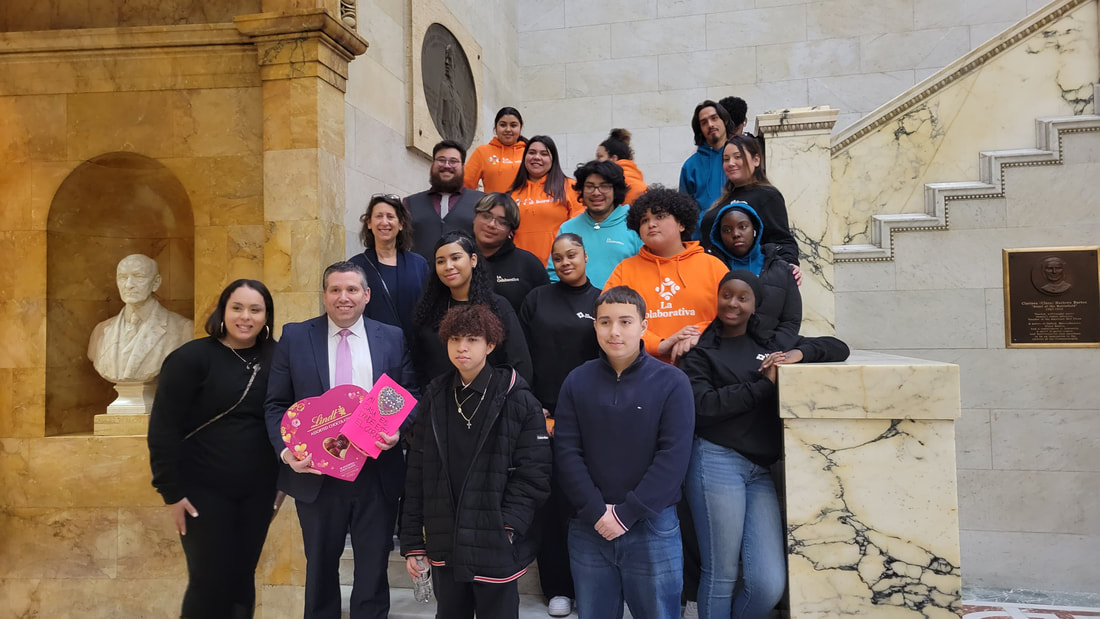2023-24
Access to Counsel Bills
|
The Massachusetts Access to Counsel Coalition seeks to ensure that low income people have access to resources and assistance that will prevent an eviction and stabilize their housing. Two bills have been filed in the 2023-24 session based on the Coalition's recommendations:
|
|
Principles for an
Access to Counsel Program
in Massachusetts
The Massachusetts Right to Counsel Coalition has developed
Guiding Principles for an Access to Counsel Program in Massachusetts
Guiding Principles for an Access to Counsel Program in Massachusetts
Housing Stabilization and Homelessness Prevention
Whereas housing is a basic fundamental human need, access to legal and housing stability services are necessary to prevent homelessness, stem the tide of displacement, and stop unjust evictions.
Fairness in the Legal System
The vast majority of tenants who face eviction are unrepresented. In contrast, most landlords are represented by counsel. The result is a process that can be unbalanced and unfair.
Assistance Can Make a Difference
Access to the right assistance can prevent families from the trauma of eviction and displacement, and create a path to housing stability.
Upstream Solutions
Pre-court eviction help, proactive education and outreach, and housing stabilization are needed to prevent tenants from losing subsidized housing. “Upstreaming” will save landlords, tenants, and courts time and money and better facilitate the resolution of cases.
Community Engagement
Development of an implementation plan must provide a process to allow for input from all stakeholders on the multitude of issues to consider.
Build Upon and Strengthen the Existing Institutions
Implementation must build upon the work of existing organizations with a proven track record of effectiveness in the areas of landlord/tenant legal assistance, homelessness prevention and housing stabilization.
Collaboration
Collaboration is needed among legal services, social services, community organizers, municipalities, courts, educational institutions, and other organizations to create a continuum of impactful assistance.
Funded with New Money
The right must be funded with new money and cannot be effective by reallocating existing legal assistance and housing stabilization resources.
Outcomes
Oversight and assessment of the program should be designed in a way to insure measurable outcomes, data collection, and public reporting.
Tied to Other Systemic Housing Solutions
The right to counsel is one component of a necessary housing stability strategy that must include other initiatives to preserve and expand the supply of affordable housing for low and moderate income people.
Whereas housing is a basic fundamental human need, access to legal and housing stability services are necessary to prevent homelessness, stem the tide of displacement, and stop unjust evictions.
Fairness in the Legal System
The vast majority of tenants who face eviction are unrepresented. In contrast, most landlords are represented by counsel. The result is a process that can be unbalanced and unfair.
Assistance Can Make a Difference
Access to the right assistance can prevent families from the trauma of eviction and displacement, and create a path to housing stability.
Upstream Solutions
Pre-court eviction help, proactive education and outreach, and housing stabilization are needed to prevent tenants from losing subsidized housing. “Upstreaming” will save landlords, tenants, and courts time and money and better facilitate the resolution of cases.
Community Engagement
Development of an implementation plan must provide a process to allow for input from all stakeholders on the multitude of issues to consider.
Build Upon and Strengthen the Existing Institutions
Implementation must build upon the work of existing organizations with a proven track record of effectiveness in the areas of landlord/tenant legal assistance, homelessness prevention and housing stabilization.
Collaboration
Collaboration is needed among legal services, social services, community organizers, municipalities, courts, educational institutions, and other organizations to create a continuum of impactful assistance.
Funded with New Money
The right must be funded with new money and cannot be effective by reallocating existing legal assistance and housing stabilization resources.
Outcomes
Oversight and assessment of the program should be designed in a way to insure measurable outcomes, data collection, and public reporting.
Tied to Other Systemic Housing Solutions
The right to counsel is one component of a necessary housing stability strategy that must include other initiatives to preserve and expand the supply of affordable housing for low and moderate income people.
